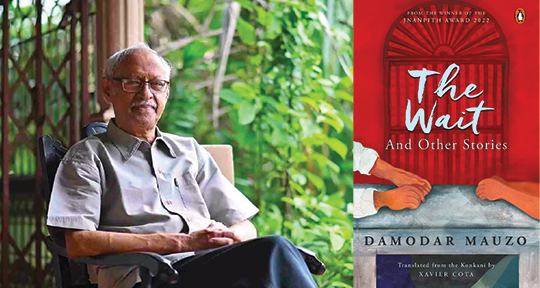The Wait and Other Stories by Damodar Mauzo, translated from the Konkani by Xavier Cota, Penguin India, 2022
Damodar Mauzo is a short story writer, novelist, and critic hailing from the Indian state of Goa. He writes in Konkani and his works have been translated into English by Vidya Pai in addition to his long-time collaborator, Xavier Cota. The Wait and Other Stories, a short story collection, has been translated by the latter. In 2021, he was the recipient of the Jnanpith Award, India’s highest literary honour. The writer Vivek Menezes calls Mauzo “an exemplar of Goa’s fluid cultural identity, marked by an unabashed pluralistic universalism that persists despite threats and depredations.” His stories seamlessly bridge the gap between timeless and current, invoking the great short story writers of the nineteenth century—de Maupassant, O Henry, Saki—in terms of how often they take an unexpected turn at the end, but also modern practitioners of the form in post-Independence India like Anjum Hasan and Aruni Kashyap, in the way they evoke both a local and national sense of place.
Goa’s history is tumultuous much like the rest of India, but it is also unique due to its separate, and much longer, history of European colonization. In the fifteenth century, it was ruled over by the Adil Shahis of Bijapur. The Portuguese overthrew them and claimed Goa as their territory in 1510, a sovereignty that remained in place for more than four centuries. As such, Goa was never a part of the British Empire and its Indian holdings. Therefore, India’s eventual independence from British rule in 1947 did not impact its Portuguese-controlled status. When the newly established Indian government asked Portugal to cede all its territories on the subcontinent, it refused. As a result, India invaded to annex Goa, along with the Daman and Diu Islands, into the union in 1967. For two more decades, Goa remained just a union territory after a referendum but was eventually designated as the twenty-fifth state of India in 1987.


